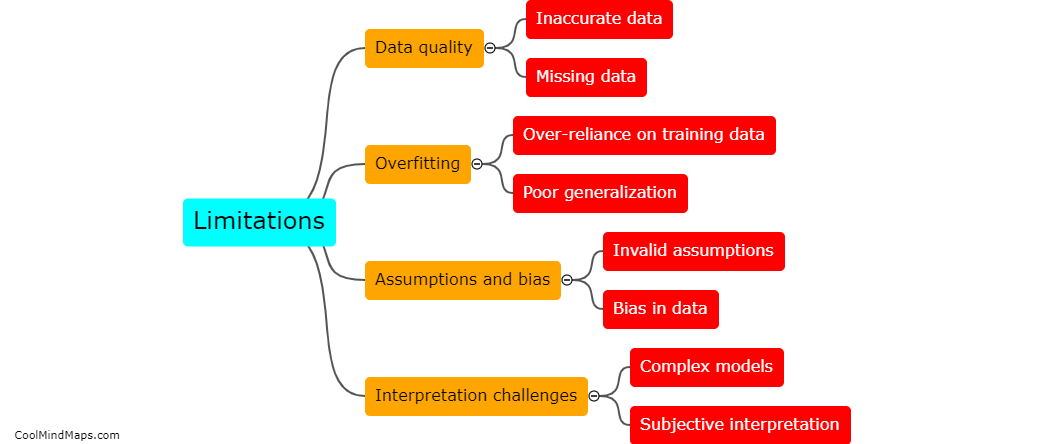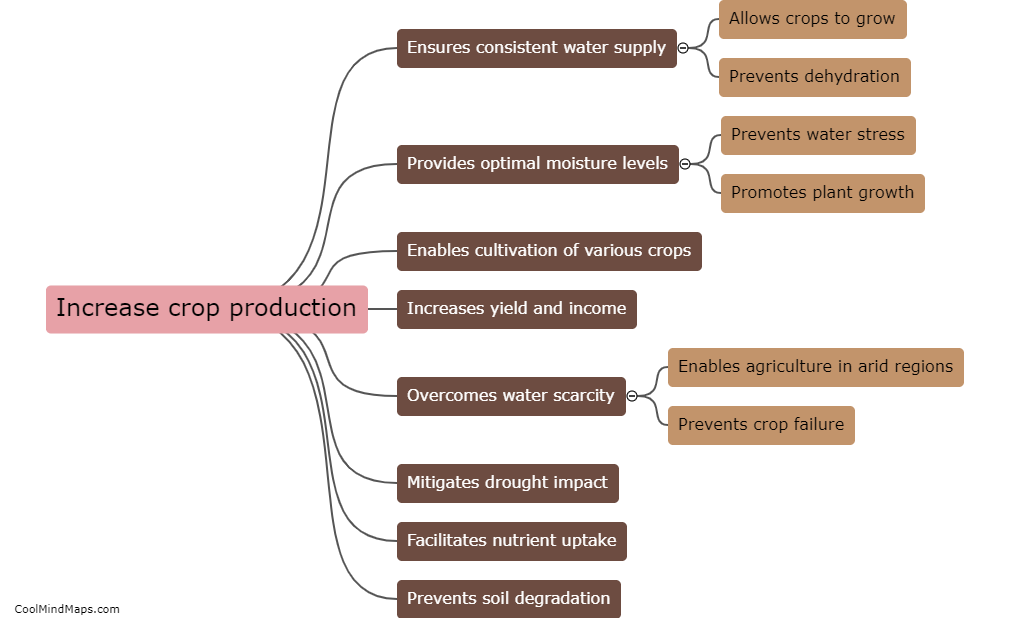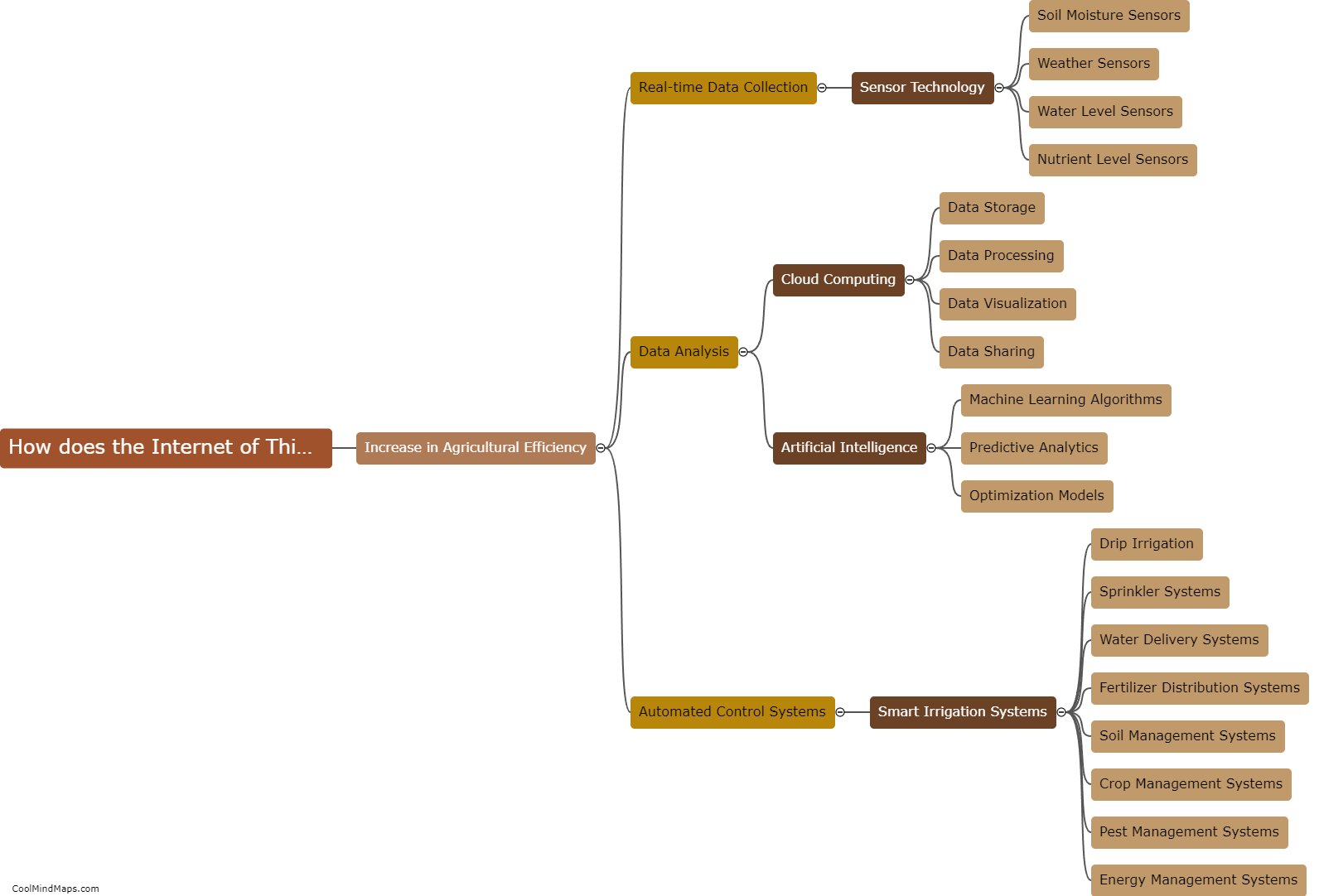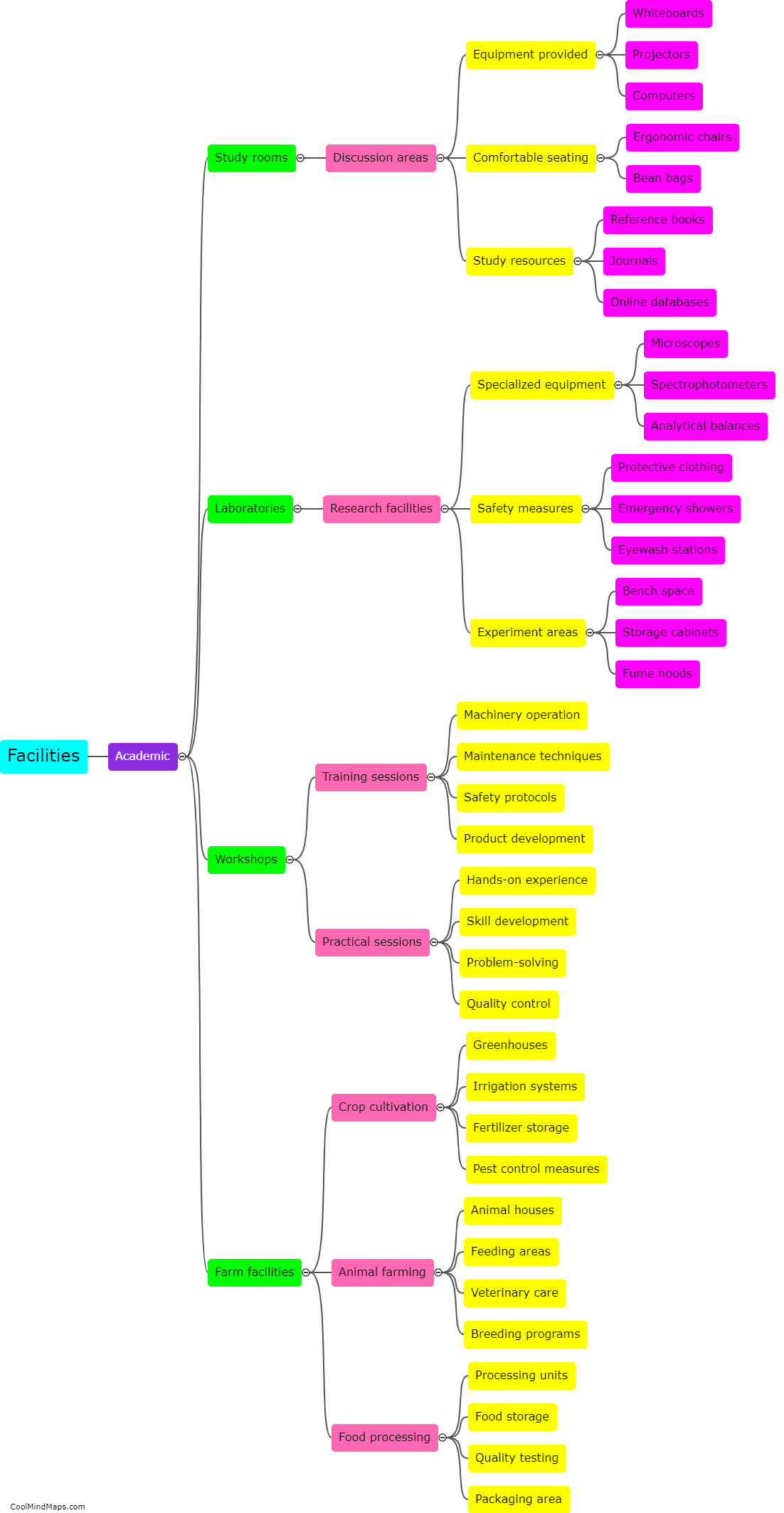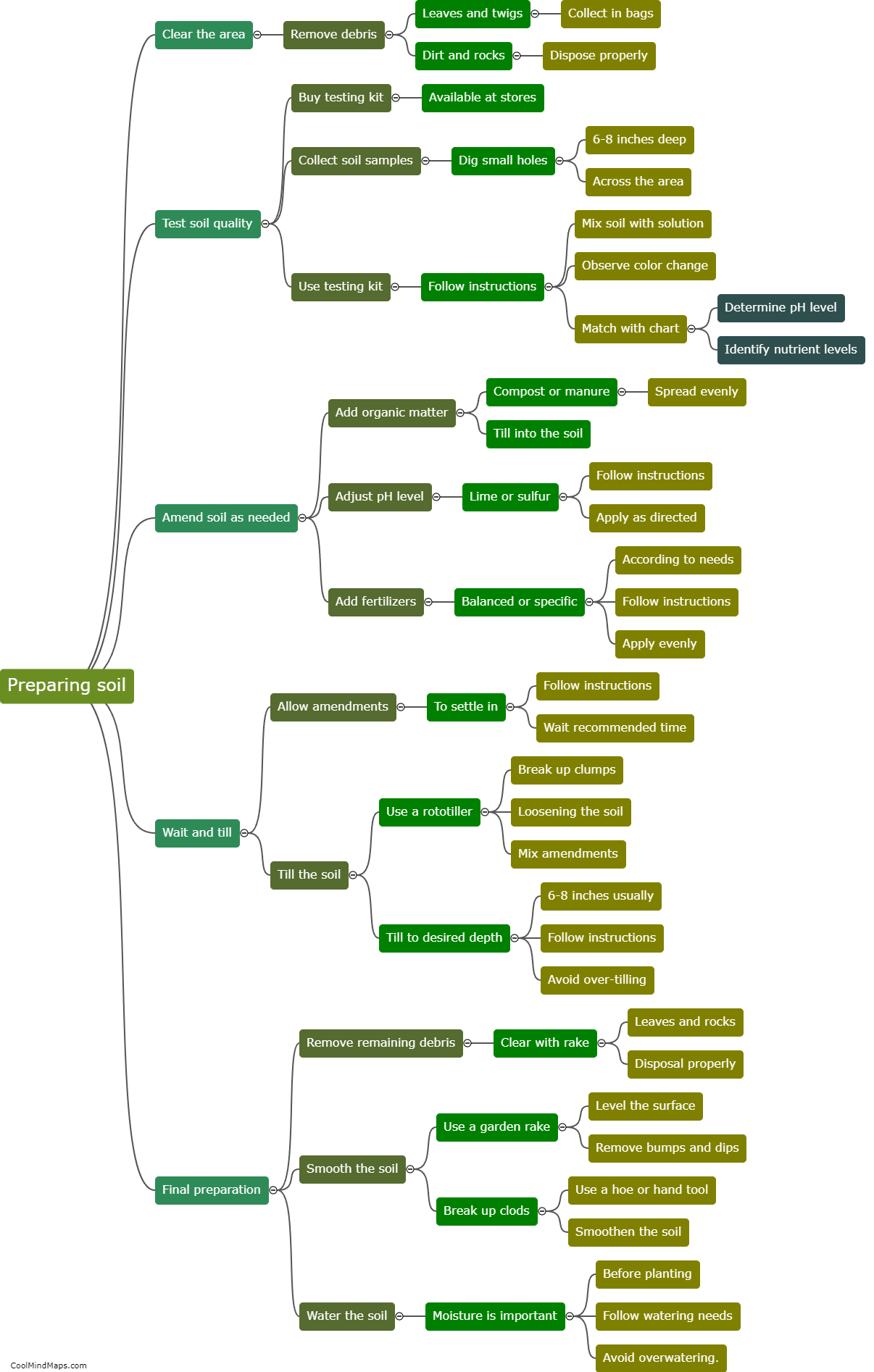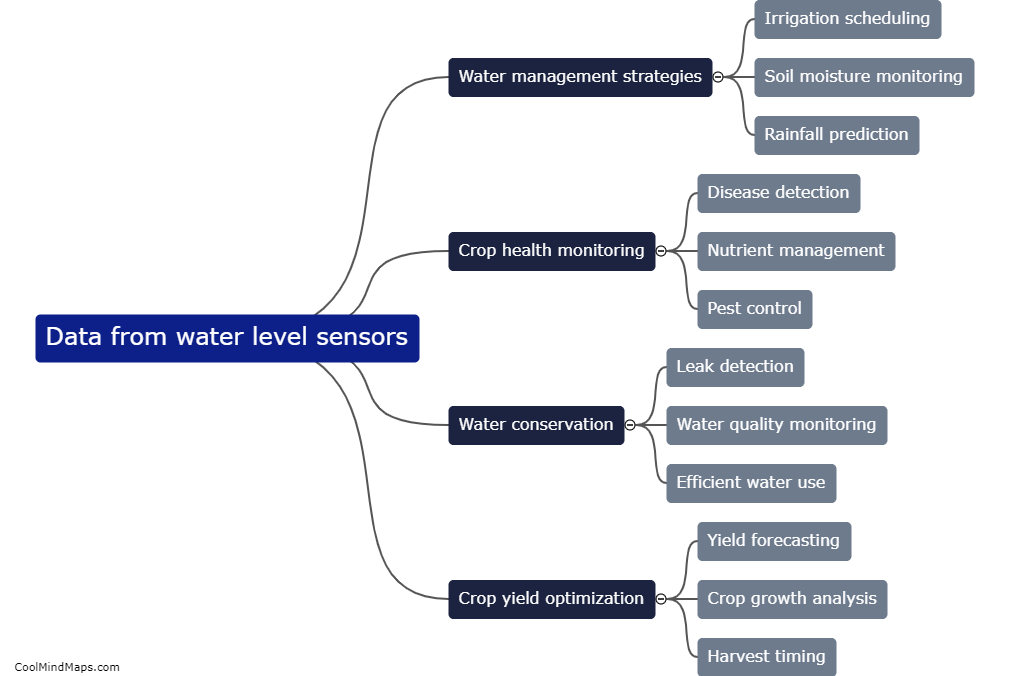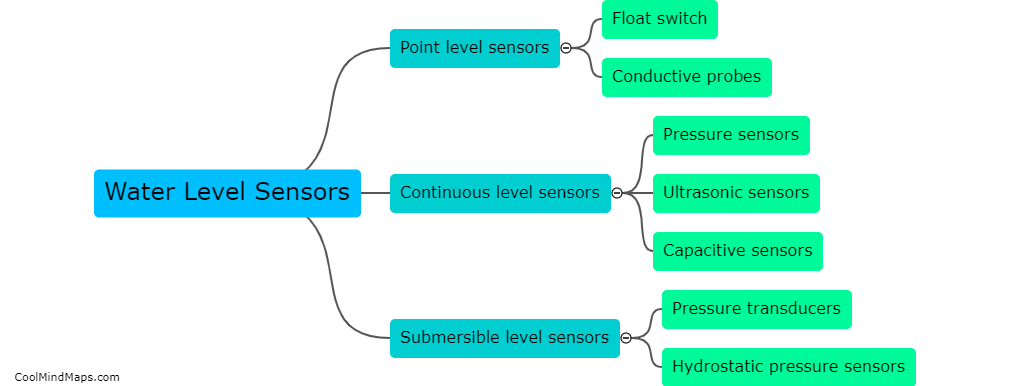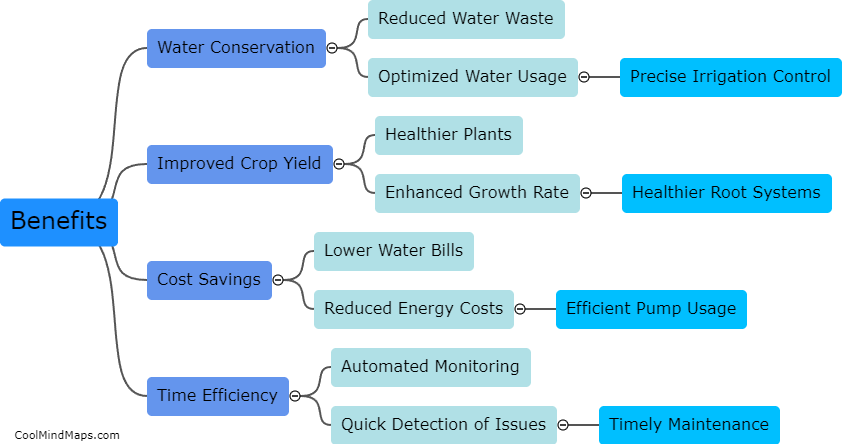How can water level sensors help in efficient water management?
Water level sensors play a crucial role in efficient water management by providing accurate and real-time information about the water levels in various reservoirs, tanks, and bodies of water. These sensors help in monitoring and controlling water usage, preventing wastage, and optimizing water distribution and allocation. By continuously monitoring water levels, authorities can make informed decisions about water supply and demand, identify leakages or losses, and implement preventive measures in areas prone to floods or droughts. This data enables efficient planning and allocation of water resources, ensuring a sustainable and reliable water supply for communities and industries. Water level sensors thus contribute significantly to maximizing water conservation and management efforts.

This mind map was published on 18 September 2023 and has been viewed 102 times.


